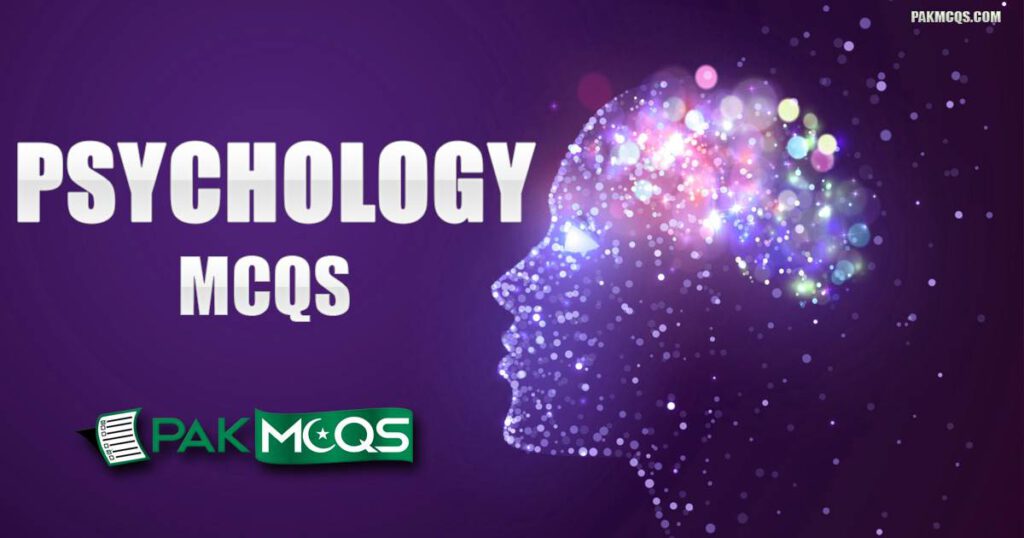A. 1,2 & 3
B. 2,3 & 4
C. 1,2 & 4
D. 4
Psychology Mcqs
Psychology Mcqs for Preparation – These Multiple Choice Questions are important for Lecturer Psychology, Clinical psychologist, Counselling psychologist, Educational psychologist and Forensic psychologist Jobs tests. Psychology Mcqs questions are very important for all type of exams conducted by Fpsc, Nts, Kppsc, Ppsc, Spsc, Bpsc, Ots, Uts, Pts, Cts, Ats, etea and other testing agencies of Pakistan.
| PSYCHOLOGY MCQS | |||
|---|---|---|---|
| 1. Introduction to Psychology | 2. Emotions | ||
| 3. Therapy | 4. Memory | ||
| 5. Intelligence | 6. Infancy And Childhood | ||
| 7. Health Psychology | 8. Forensic Psychology | ||
| 9. Branches of Psychology | 10. Attitudes, Attributions And Social Cognition | ||
| 11. Adolescence And Adulthood | 12. Abnormal Psychology | ||
| 13. Social Psychology | 14. Sensation And Perception | ||
| 15. Research Methods | 16. Psychology Theories | ||
| 17. Psychological Disorders and their Treatment | 18. Personality | ||
| 19. Organizational Psychology | 20. Nervous System | ||
| 21. Motivation | 22. Methods and Approaches | ||
| 23. Methodology | 24. Major Thinkers in Psychology | ||
| 25. Learning | 26. Language And Thought | ||
| 27. Interpersonal Relations And Group Processes | 28. Industrial Psychology | ||
| 29. Educational Psychology | 30. Developmental Psychology | ||
| 31. Criminal Psychology | 32. Coordination | ||
| 33. Cognitive Psychology | 34. Biological Foundations of Behavior | ||
| 35. Miscellaneous Psychology | 36. | ||
A. Perceptual learning, spatial learning and discrimination learning
B. Imprinting, aversive conditioning and instrumental learning
C. Classroom learning, street wise learning and common sense
D. Reinforcement, punishment and habituation
E. (a), (b) and (c)
A. OCD behaviours are naturally learned from biological relatives
B. OCD behaviours are learned from pairing anxiety-provoking stimuli with common behaviours
C. OCD behaviours are learned by perceptual processing of anxiety-provoking stimuli
D. OCD behaviours are contingent upon schedule of reinforcement
E. OCD behaviours are reinforced and maintained because they reduce anxiety
A. 1 & 2
B. 1 & 3
C. 2 & 3
D. 4
A. In the experiment by Gracia and Koelling (1966), animals given LiCl as the US showed an aversion to the light and click
B. Researchers have tended to assume that they results obtained from laboratory studies reveal general principles about the nature of association formation which apply to other species and other stimuli
C. The experiment of Gracia and Koelling (1966) opposed the nation of preparedness
D. The result of Gracia and Koelling’s (1966) experiment supported researchers’ attempts to establish general laws of learning
A. 1 & 2
B. 2 & 3
C. 1 & 3
D. 2 & 4
A. Response-outcome association
B. Stimulus-response association
C. Selective response learning
D. Instrumental learning
E. Stimulus-habit association
A. Rates master spatial tasks much more easily than typical configural learning tasks
B. Spatial learning operates according to principles identical to those that underlie classical and instrumental conditioning procedures
C. Exposure top an environment can allow the animal to forma a cognitive map of the environment
D. The animal is then able to negative because it knows its own position with respect to its internal representation environment
A. 1 & 2
B. 2 & 3
C. 3 & 4
D. 1 & 3
A. Instrumental learning is the process by which an animal learns about the relationship between the behaviour and the consequences of that behaviour
B. Instrumentally trained responses are not entirely elicited by identifiable stimuli
C. Instrumental learning allows the animal to control the occurrence of environmental events
D. All of the above


